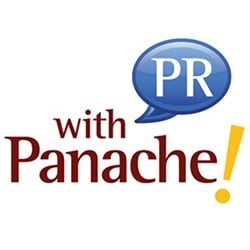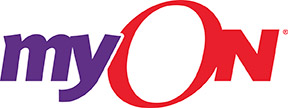The group of grade school students ranging in age from 9 to 12 gathered in a circle for the second session of the Summer Literacy Club.
In the middle of the circle, longtime Valrico Elementary School teacher Julie Sparks read the kids an article about children who fought in the Civil War.
The 14 students followed along, many with a pen in one hand and a piece of food in the other. After the first page of the reading packet, Sparks asked the group, "What do you think about the boys' decision to go to war?"
Renaldo Wallace, 9, wasn't impressed.
"He doesn't even know what he's doing, and he's going to war," he said of a 15-year-old who ran away from home to join the Union Army.
Brian Sanchez, 10, agreed.
"He thinks it'll be like fighting his sisters," he said, sparking laughter, "but really they're giants."
Around the circle they went, some students using quotes from the story to bolster their opinions. They argued, they listened, they laughed and they had fun.
And they were reading — not a given in the summer months.
• • •
Sparks, who also volunteers at the library and sends tips to parents for summer reading strategies, started the weekly Summer Literacy Club for her students in 2014. Her goal with the club — this summer's theme is American history — is to prevent a problem as old as the traditional school calendar: the dreaded "summer slide."
Summer learning loss — when students forget some of what they learned during the school year — has been researched on the national level and experienced on the local level.
Sparks said when students don't read over the summer, it shows in the fall.
"The students who have lacked practice over the summer, they lose their stamina to give attention to a task, and that causes anxiety," Sparks said.
Like many programs and camps designed to keep students learning over the summer, Sparks' club isn't directly affiliated with the Hillsborough County School District. The district does have its own on-site summer programs, but they tend to be for students who are far above or below grade level.
For the rest, the district encourages families to use the public library over the summer, as well as myON, an online literacy program, K-5 library media services supervisor John Milburn said.
• • •
There's also a network of community organizations that sponsor or direct summer camps and programs, often at the schools themselves. One of them, based at Graham Elementary School, is the YMCA's Summer Learning Loss Prevention program, or SLLP, a national initiative that started in Tampa four years ago.
The six-week program, where kids read in the morning and play or go on field trips in the afternoon, is for students who are "on the bubble," program director Candace Culver said.
"They're not low enough on the spectrum to qualify for the summer reading program that the school does, but if they don't get this, they will lose significant amounts over the summer," Culver said.
Like Sparks' club, the loss prevention program focuses on reading. The philosophy is that you can't solve word problems or understand a science textbook if you can't read them.
But the program at Graham aims younger, focusing on incoming first- and second-graders — a critical time for reaching grade level in reading.
"Up until third grade you're learning how to read," Culver said. "And in fourth grade, you're reading to learn. If you can't read the materials in front of you, then your learning in every subject falls behind."
• • •
The risk of falling behind during the summer is greater for kids from low-income families, who often don't have access to the same resources, activities and camps as their classmates from higher class families.
That's why the SLLP program — which doesn't have an income requirement — is free and includes meals, Culver said. It's also why United Way Suncoast, through its Early Learning Initiative, gives scholarships for kids to attend the YMCA's or other organizations' programs.
"It's often thought of as the time to put books away, but we want to pull them back out," United Way communications vice president Deanna Wilson said.
• • •
Sparks' more low-key weekly group is also free, and she said her students have a variety of backgrounds and reading proficiency levels — some are several grades ahead, while others are set to repeat a grade.
Brian Sanchez, the kid who compared soldiers to giants, has a summer schedule. His father, Juan Sanchez, said his son likes playing video games, but he also likes the math flashcards and daily reading. Brian said he looks forward to club meetings.
"It's funner than school," Brian said.
That, Sparks said, is the point — to get students to love reading, and to love talking about reading.
"Anytime we can make what we're asking our kids to do relationship-oriented and social, it's a big payoff for them and for us," she said.


